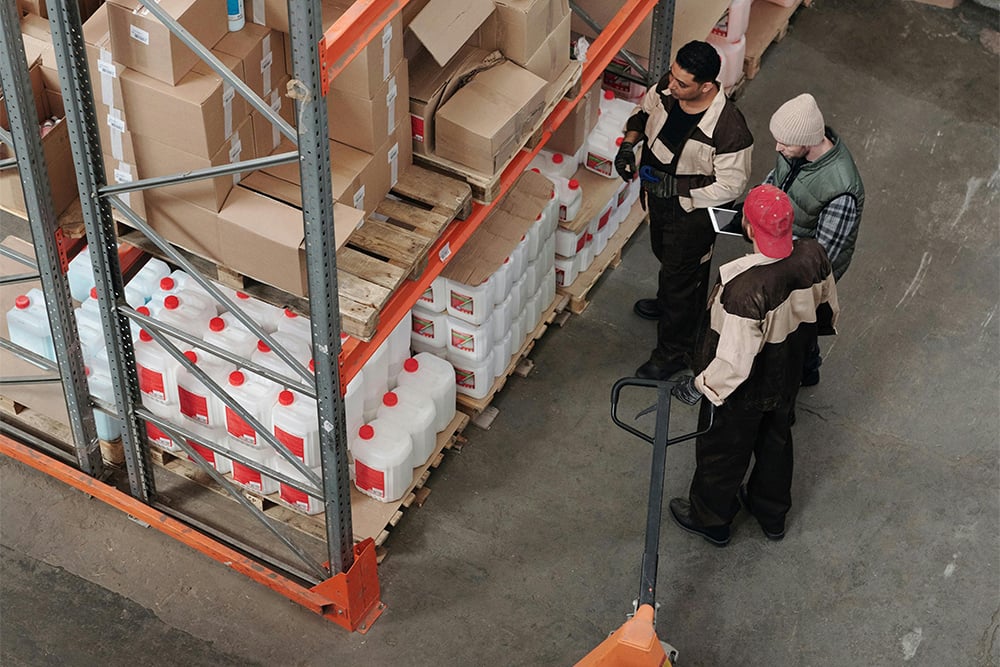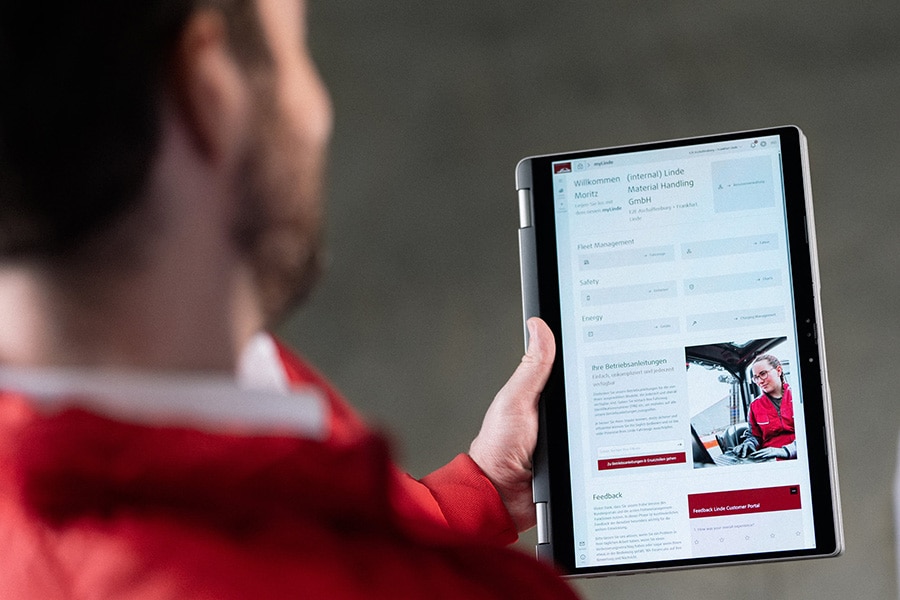
Logistics software as a solution for modern warehouse management
From small retailers to large multinationals, logistics - the process of moving, storing and distributing goods and services - is a vital process for any business. Each sub-process (purchasing, production, storage, transport, distribution ...) requires an efficient and modern approach. What added value does logistics software offer you here?
Modern companies rely heavily on advanced software and technologies to manage and improve their logistics operations. Indeed, in the world of modern logistics, the role of technology cannot be underestimated. With the growing demand for fast deliveries and accurate order fulfillment, companies face the challenge of setting up their warehouse environment to be as performant as possible.
Software vendors provide solutions for automating inventory management, order processing and tracking to a maximum, collecting and analyzing data as well as integrating various logistics processes - such as warehouse management, transportation planning and order picking - and aligning them seamlessly. This process leads to lower operating costs, optimal inventories and satisfied customers.

Wide range of software solutions
The range of logistics software solutions is extensive. An overview in a nutshell.
- Warehouse Management Systems (WMS): with WMS software you automate and optimize your warehouse activities. With this software, you streamline processes such as inventory management, order fulfillment and inventory control. This offers your company better operational speed and accuracy. By providing real-time visibility into inventory levels and locations, WMS optimize the supply chain, increase customer satisfaction and reduce operational costs.
- Transportation Management Systems (TMS): a transportation management system is software that helps your business handle the movement of physical goods by land, air or sea (or any combination of these) as efficiently as possible. As part of the internal supply chain management system, TMS software ensures that your goods are delivered on time. How? By optimizing loads and delivery routes, tracking freight and automating time-consuming tasks such as trade compliance and freight billing.
- Enterprise Resource Planning (ERP): with an ERP system, you integrate various business processes - including logistics, finance and inventory management - into one integrated platform. This gives you an overview of your activities from A to Z and allows you to streamline processes, reduce costs and improve operational efficiency within your organization.
- Warehouse Control Systems (WCS): WCS software works closely with WMS systems and focuses on managing operational processes within a warehouse environment. It offers functionalities such as material handling, warehouse automation and real-time monitoring of warehouse activities.

Criteria for choosing a software vendor
When selecting a software vendor for logistics solutions, it is wise to consider a few aspects. First, it is essential to identify your company's specific needs and objectives.
This includes determining what features and capabilities you need, such as inventory management, order fulfillment, transportation optimization and reporting. Next, it is important that you thoroughly research potential suppliers. Consider their reputation in the industry, reviewing their track record and checking customer references.
A vendor with experience and a proven track record in delivering logistics software solutions is often a safe choice. Good support and aftercare - including training, implementation guidance and maintenance - is also an important asset. In addition, it is crucial to evaluate the flexibility and scalability of the software offered. You want a solution that can grow with your company's needs and adapt to changing requirements in the future.
Finally, it is advisable to carefully analyze cost and Return On Investment (ROI). After all, it is important to balance the cost of the software with the value it provides in terms of efficiency gains, cost savings and competitive advantage.
By following these steps and doing thorough research, you can select an appropriate logistics software vendor that meets your company's unique needs and goals.




